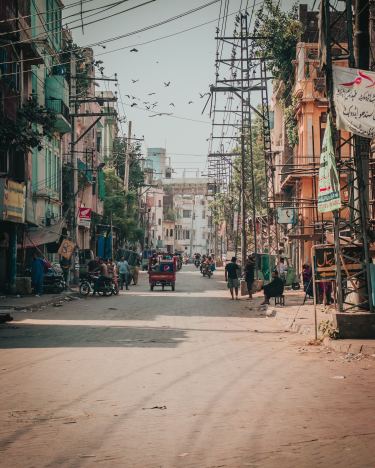
In a horrifying incident in Lahore, Pakistan, a Christian sanitation worker fell victim to a brutal assault by infuriated Muslims, leaving him battered and chained under the scorching sun for hours on Saturday, May 25.
The victim, Yasir Masih, 35, was discovered by his father-in-law, Hussain Masih, shackled to a chair in the Gujjarpura locality of Lahore, his body bearing severe bruises inflicted by his assailants.
According to Hussain Masih's account to Christian Daily International-Morning Star News, Yasir Masih had been subjected to relentless torment by Malik Khadim Hussain, a resident of Gujjarpura, and his family. Masih's crime? A delay in attending to the demands of the influential Muslim family to clean their premises promptly. Despite Masih's explanation of needing to complete his official duties before tending to their requests, Hussain and his accomplices launched a brutal assault on him with iron rods, fists, and kicks, before callously chaining him to a chair and leaving him in captivity.
Upon regaining consciousness, Masih managed to escape, albeit still bound to the chair, stumbling onto the street where he was eventually found by passersby. Someone informed Hussain Masih, who ultimately reached the heart-wrenching sight where Masih, a father of four, lay unconscious and grievously injured.
Subsequent protests led by Masih's family and friends outside the Lahore Press Club demanded justice and the arrest of the perpetrators. While initial arrests were made, including that of Malik Hussain, his sons remained elusive, leading to further appeals for swift and comprehensive legal action against all involved.
This appalling incident, as remarked by Christian socio-political activist Sunil Gulzar, lays bare the entrenched bias and mistreatment faced by marginalized sanitation workers, mainly Christians, in Pakistan. Despite their contribution in maintaining cleanliness in cities, these workers endure discrimination and abuse at the hands of affluent , underscoring the urgent need for systemic change and protection of their rights.
Gulzar also highlighted the systemic prejudice inherent in the caste-based discrimination faced by these workers, often referred to derogatorily as "Chuhra," perpetuating their historical association with menial tasks deemed inferior by society.
As Pakistan grapples with its reputation as one of the most challenging places for religious minorities, incidents like these serve as stark reminders of the enduring struggle for equality and justice for all citizens, regardless of their faith or profession.




